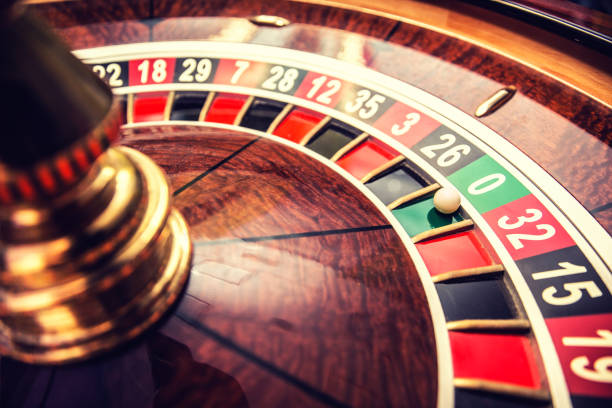
If you’ve been following British crime dramas, you may have noticed how often casinos and card tables appear at the centre of the action. The atmosphere of flashing lights, constant surveillance and an endless flow of money creates a natural arena for tension. One of the most striking recent examples is The Cage, a BBC drama set in a Liverpool casino. The plot follows two employees who begin stealing from the same safe, each unaware at first that the other is doing the same.
When they discover the truth, suspicion and desperation spiral rapidly, drawing them into deeper trouble with the law and also organised crime. In real life, gambling culture has surged recently in Britain: the gambling industry’s Gross Gambling Yield reached £15.6 billion in the year from April 2023 to March 2024, showing how much money moves through games of chance and feeds into the anxiety you see reflected on screen. By situating the story inside a casino, the series makes every decision more dangerous and every lie more difficult to conceal.
Gambling Tropes and Real-Life Online Trends
Writers including gambling themes in their stories often echo what you might see in the real world of online betting: characters tempted by bonuses, loyalty schemes and fast deposits reflect the culture surrounding digital casinos. This can feel familiar to anyone who has browsed platforms such as National Bet Casino, where welcome offers, account convenience and promotional rewards are a major part of the experience.
The parallels grow stronger when you consider the new rules arriving in the UK: from September 2025, adults over 25 will face a £5 limit on each online slot spin, while younger players will be capped at £2. These changes show how gambling has become a major public debate and that wider context dictates how audiences interpret the struggles of fictional gamblers on screen.
The Cage: Tension, Theft and Ethics
The appeal of The Cage lies in how it portrays ordinary workers placed under extraordinary pressure. Leanne and Matty, the two employees at the centre of the drama, are initially motivated by small acts of theft that seem almost manageable. Yet, the moment they realise they are stealing from the same source, their relationship shifts into a contest of suspicion, strategy and survival.
Watching their story unfold invites you to think about the lengths you might go to if cornered in a similar situation. The Liverpool casino environment intensifies their dilemmas, because it is a place where surveillance is constant, security is high and any misstep could have immediate consequences. That sense of being trapped within a high-pressure cage is what gives the show its name and its edge.
Card Tables, Stakes and Character Development
Card games have long been a rich device for storytellers, with recent British dramas continuing that tradition with more attention to detail. A poker hand can reveal a character’s willingness to take risks, their capacity for deception or the weight of their financial burdens; a single move at the table can symbolise a decision in life beyond the game.
Older films like Lock, Stock and Two Smoking Barrels made this imagery unforgettable, but today’s dramas lean more heavily on realism, showing the psychology of bluffing, the tension of mounting debts and the raw fear that comes when luck turns cold. Even if you have never placed a bet yourself, the card table scenes are compelling because they distil universal themes of chance, ambition and desperation into sharp, visual moments.
The Wider Role of Gambling in Modern Drama
Casinos and card tables also carry symbolic weight that goes beyond the surface narrative, standing in for wider societal issues, such as inequality, corruption and the lure of quick fortune. When you see a character slide chips across a table, you are also witnessing echoes of public discussions about gambling harms, regulatory reforms and the function of betting companies in British sport and culture.
These themes resonate with audiences who recognise them from everyday life, giving dramas a relevance that extends outside the screen. For writers, the gambling world offers a way to explore power imbalances, personal downfall and the thin line between risk and ruin. Moreover, the tension and unpredictability inherent in gambling mirror the dramatic arcs of the characters themselves, amplifying suspense and emotional stakes for the audience.
Beyond the Casino: Expanding the Canvas
Recent stories have begun to broaden their use of gambling beyond the walls of the casino floor. Some plots explore illegal dens hidden in pubs or warehouses, tapping into a history of underground betting that still holds fascination; others focus on the digital domain, portraying characters who become ensnared by gambling apps or criminals exploiting online platforms for money laundering.
Even when the setting changes, the dramatic core remains the same: people making dangerous choices in environments where fortune can swing wildly in an instant. As a viewer, you are drawn into these situations because they mirror the uncertainty of everyday decision-making, only magnified into life-altering stakes. This universality allows gambling scenes to function as a lens through which we examine broader human behaviours (ambition, greed, hope and fear), regardless of the narrative backdrop.
What It All Says About Us
When you look across modern British crime dramas, the recurring presence of casinos and card games highlights how deeply gambling resonates as a cultural theme. These stories show flawed characters balancing opportunity against downfall, with every decision tinged with risk, keeping you watching for the crimes committed and also for the insight into human vulnerability and ambition.
Writers return to these environments again and again because they provide the perfect backdrop for exploring moral grey areas. A casino is a place where money, trust and fate collide; an ideal stage for crime stories that ask difficult questions about who we are and how far we would go when the stakes rise. Beyond mere entertainment, these gambling settings hold up a mirror to society, revealing our ambitions, vulnerabilities and the fine line between risk and reward.
